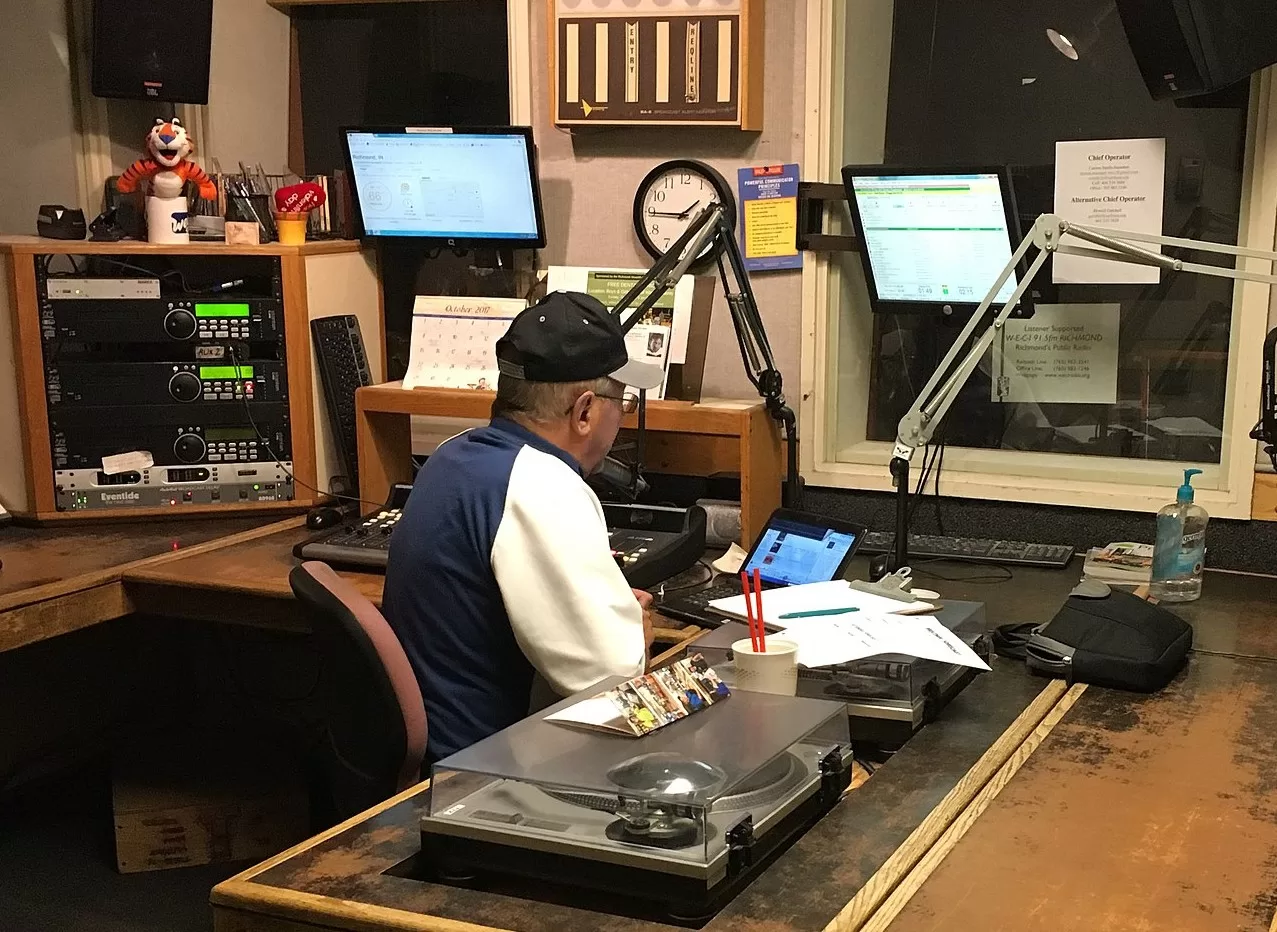Reframing the US government’s relationship with the media and placing free speech and democracy in the firing line is at the heart of Project 2025, the 922-page policy plan supported by over 400 conservatives and led by the Heritage Foundation thinktank.
Contributed to by more than 100 of Donald Trump’s former administration officials, the document lays out a comprehensive vision for the next conservative US administration, and seeks to fundamentally change the nature of government’s relationship with the media.
The US has one of the most highly developed mass media networks in the world, TV being the most consumed. The “big three” – Fox, MSNBC and CBS – dominate the mainstream independent sphere and are often criticised for a consistently “far left” or “far right” bias; public government-supported networks PBS and NPR, meanwhile, promise to provide unbiased factual reporting.
Many on the right, including former President Donald Trump, accuse NPR and PBS of left-leaning bias and call for ending government-funded media. Republican lawmakers’ past efforts to defund NPR and PBS have gained traction with Project 2025.
But defunding public media could lead to local news station closures, increasing the influence of biased reporting from major networks like Fox, which the left claims is a mouthpiece for Trump’s political agenda.
Trump has always tried to reframe free speech as biased and has sought to place journalists in the news itself in the pursuit of delegitimisation.
As explained by Russian economist Sergei Guriev and American political scientist Daniel Treisman, authors of Spin Dictators, the new generation of autocracy is diverse. While the primary goal remains the same – monopolising political power – this new power is maintained “by repressing any opposition, controlling all communications, [and] punishing critics.”
A skilful ruler can control people by reshaping their beliefs about the world, fooling them into compliance and even enthusiastic approval. “In place of harsh repression, the new dictators manipulate information. Like spin doctors in a democracy, they spin the news to engineer support. They are spin dictators.”
A closer look at Chapter 8 of Project 2025, with its policy proposals against public media and press freedom and its potential to endanger journalists both domestically and abroad, reveals these strategies and beliefs in action.
Mike Gonzales, a journalist and senior fellow at the Heritage Foundation, lays out the plan for how a future administration could defund the Corporation for Public Broadcasting (CPB).
The CPB operates as a private nonprofit corporation and is the primary financial backer of public radio and television, using tax dollars to finance public media institutions to ensure Americans have access to free, local public media. While fully funded by the federal government, the organisation doesn’t engage in programme production, distribution, or station ownership.
At the centre of Gonzales’s case against the CPB is the need to defund National Public Radio (NPR) and the Public Broadcasting System (PBS). The claim is that the nonprofit media organisations have a liberal bias, and the country cannot afford to spend half a billion dollars on “leftist opinion”. The “government should not be compelling the conservative half of the country to pay for the suppression of its own views,” his document asserts.
NPR and PBS have faced longstanding criticism from Republican politicians on the basis of an alleged liberal bias. Republican nominee Donald Trump took to Twitter earlier this year, writing, “No more funding for NPR, a total scam!” He claimed that the organisation is “Only used to damage Trump’” and that “they are a liberal disinformation machine,” after a former editor at NPR criticised Katherine Maher, NPR’s new CEO, for fostering a liberal bias.
Gonzales asserts that a Project 2025 defunding of public media would not lead to the end of such organisations. “Defunding CPB would by no means cause NPR or PBS – or other public broadcasters that benefit from CPB funding – to file for bankruptcy,” he argues, “The membership model and support from corporations and foundations would enable these broadcasters to continue thriving.”
David Liberman, a media studies professor who has been covering the industry for decades agrees: “Project 2025’s proposal to defund the Corporation for Public Broadcasting falls into a familiar trap. The Heritage Foundation believes that it would undermine what it calls the “leftist opinion” it perceives on PBS and National Public Radio. But the initiative is mostly symbolic: little federal money goes to their most controversial newscasts.”.
Only 8% of NPR’s revenues actually come from federal funds and 15% for PBS. Cutting the amount of cash the government gives them would likely have a detrimental, but not fatal, effect. But the CPB has another function, it supports almost 1,500 smaller stations including rural stations across the USA. According to the CPB, rural public broadcasting stations heavily rely on its Community Service and that’s where 70% of CPB’s annual appropriation goes.
Liberman, who has reported on these populations firsthand, adds: “The entities that would be most hurt are independently owned NPR stations—particularly the ones that provide local journalism. The money from CPB accounts for about 12% of their budgets. The lost contributions would be especially damaging to stations in rural news deserts that have lost their daily newspapers.”
This not only diminishes the visibility of local issues but also deprives communities of trusted journalism, making more accessible news outlets such as social media platforms like X and biased news organisations like Fox the primary sources people turn to for information,
Defunding and denouncing public media sources like PBS and NPR not only has a financial impact, but also a profoundly chilling effect on public broadcasters, setting a dangerous precedent for the topics and individuals that they cover or give a voice to. Gonzales concludes that NPR and PBS are “non-educational.”
While the argument for maintaining unbiased public media is valid, penalising free speech and dismissing information as lacking educational value simply because it doesn’t align with the Republican Party’s values blurs the boundaries of governmental influence and challenges the distinction between fact and opinion in the public media sector.
But it is the attack on local journalism that is the most pernicious.






